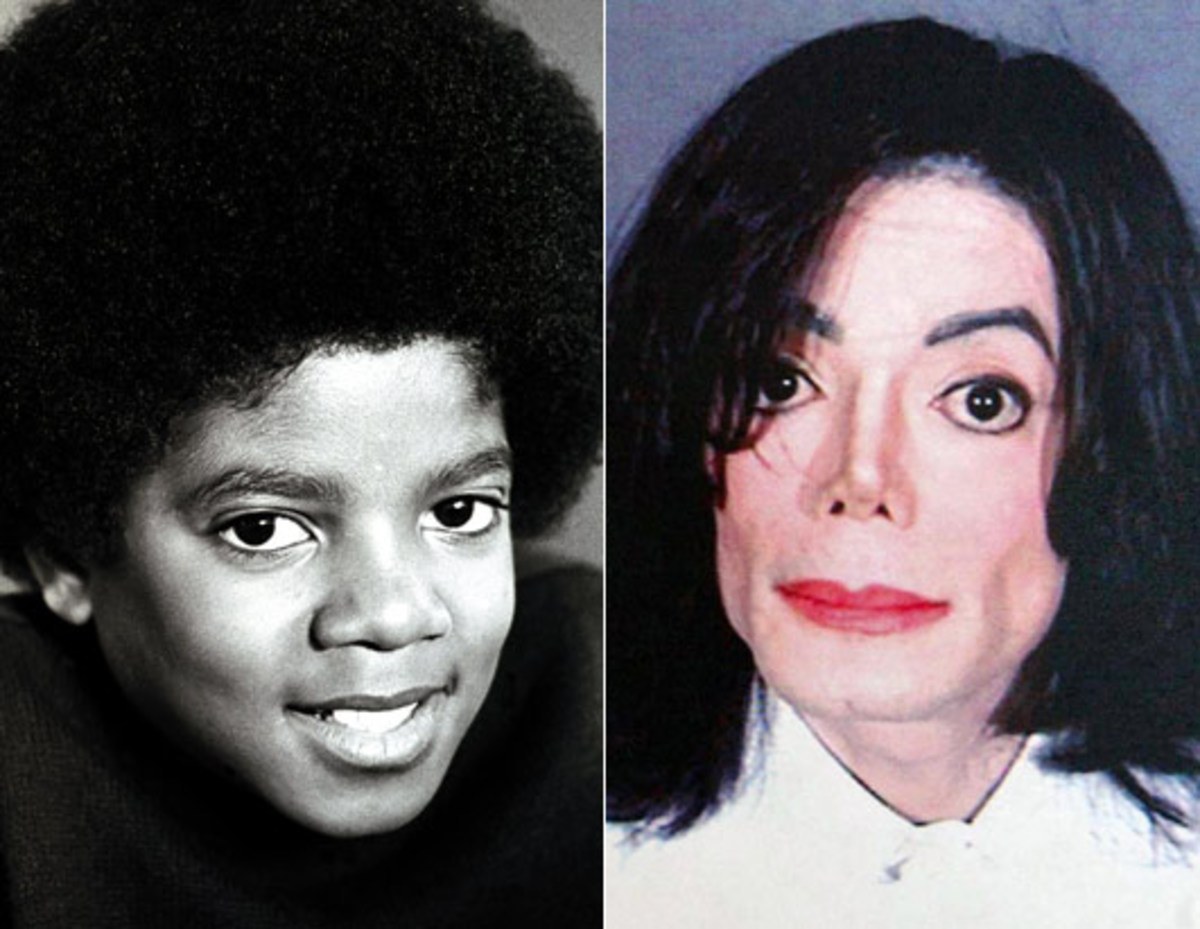by Akim Reinhardt
 Over the course of more than a decade, Michael Jackson transformed from a handsome young man with typical African American features into a ghostly apparition of a human being. Some of the changes were casual and common, such as straightening his hair. Others were the product of sophisticated surgical and medical procedures; his skin became several shades paler, and his face underwent major reconstruction.
Over the course of more than a decade, Michael Jackson transformed from a handsome young man with typical African American features into a ghostly apparition of a human being. Some of the changes were casual and common, such as straightening his hair. Others were the product of sophisticated surgical and medical procedures; his skin became several shades paler, and his face underwent major reconstruction.
As stark as the changes were, perhaps even more jarring were Jackson’s public denials. His transformation was so severe and empirical that it was as plain as, well, the nose on his face. Yet he insisted on playing out some modern-day telling of “The Emperor’s New Clothes,” either minimizing or steadfastly denying all of it. In order to explain away the changes or claim that they had never even happened, Jackson repeatedly offered up alternate versions of reality that ranged from the plausible-but-highly-unlikely to the utterly ludicrous. He blamed the skin bleaching on treatments for vitiligo, a rare skin disorder. He denied altogether the radical changes to his facial structure, claiming his cheek bones had always been that way because his family had “Indian blood.”
It was equal parts bizarre and sad. But in some ways, perhaps the most disturbing aspect of it all were those among Jackson’s loyal fans who swallowed his story whole. Despite the irrefutability of it all, they refuted it. They parroted his narratives in lockstep, repeating his claims and avidly defending the King of Pop from any questions to the contrary.
Today we face a similar situation. But it’s not about a pop star’s face lift. Ludicrous denials of reality and bizarre make believe counter-narratives are now are now central to discourses about politics and the politicized pandemic. Read more »
